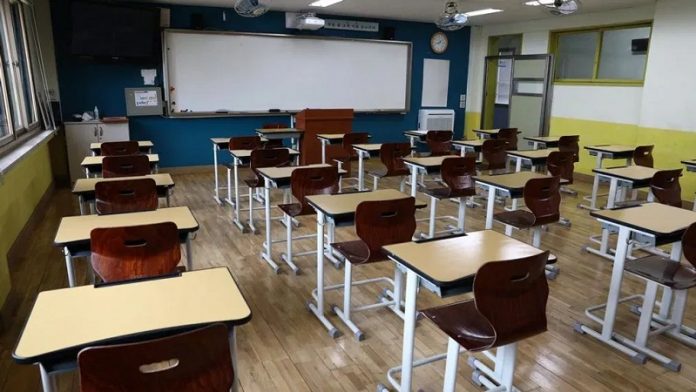Little Rock, Arkansas – Education authorities in Arkansas discussed their reactions to the ACT Aspire test’s preliminary results.
The ACT Aspire is a thorough test that measures students’ preparation for college and careers from third through tenth grade.
The Arkansas Department of Education observed that post-pandemic levels barely, if at all, recovered.
Jacob Oliva, the secretary of education, expressed concern over the reading test results for third graders.
Only 32.2% of third graders reached the preparedness criteria, which was less than the target of 35 percent for 2022, according to the statistics.
“This year’s third graders were in kindergarten during the pandemic and it just shows how critical those foundational years in literacy are for students,” Oliva said.
According to the Arkansas Department of Education, math scores fell the most dramatically from 2019 to 2022, while in the fifth grade, cores stayed same.
“This gives us the data we need so we can be more targeted in our approach to identifying students that need additional support,” Oliva said.
The LEARNS Act, according to Oliva, might raise test scores.
“When we look at why we have the LEARNS priority initiatives, it’s to provide access to high-quality literacy support,” said Olivia. “We are investing in teachers so that we can recruit and retain and attract the highest quality teacher.”
The ACT Aspire exam, according to April Reisma, president of the Arkansas Education Association, is not a reliable indicator or gauge of student knowledge.
“It’s just a test that’s taken at the end of the year and things can affect it greatly,” Reisma said. “[Things] such as a child not coming in with not enough sleep the night before or not having an adequate hot breakfast, your scores are going to be affected by little things like that.”
Reisma claimed that because there was no face-to-face education during the pandemic, student learning was significantly impacted.
More teachers, according to Reisma, could contribute to higher exam scores for students.
“We have a lot of excellent veteran teachers who are leaving the profession and the children don’t have those teachers anymore, Reisma said. “[It would help if] the state could step in and make it better for those teachers to stay.”
Reisma said that parental participation, when available, could be another factor in raising reading test scores.
“It’s proven that reading at least 20 minutes dramatically improves reading levels and that’s from in the womb,” Reisma said. “Parents who can do that should try to make that time.”
Schools will replace the ACT Aspire with the Arkansas Teaching and Learning Assessment System (ATLAS), which will track students’ progress in certain academic areas throughout the school year, according to Oliva and Reisma.

